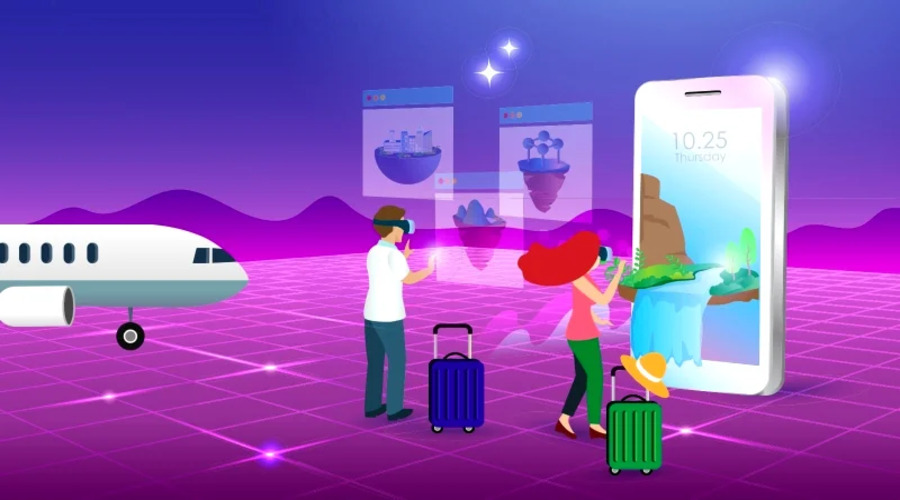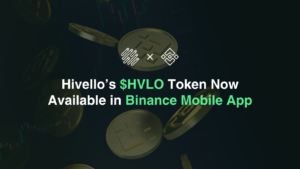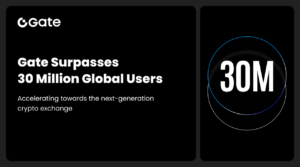Metaverse Tourism: Exploring Digital Destinations and Virtual Travel

Metaverse Tourism: Exploring Digital Destinations and Virtual Travel
With the advent of technology, the world is changing fast. From the way we work, communicate, and shop to the way we travel, everything is evolving. Today, we are witnessing a new trend in the travel industry, and that is the rise of metaverse tourism. The metaverse is a virtual world, where people can interact with each other and the environment. In this article, we will explore the concept of metaverse tourism and how it is changing the way we travel.
What is the Metaverse?
The metaverse is a virtual world that exists parallel to the physical world. It is a collective virtual shared space created by the convergence of physical and virtual reality. In the metaverse, people can interact with each other, socialize, and engage in various activities. The metaverse is not a single platform or technology but rather a collection of virtual environments that are interconnected.
What is Metaverse Tourism?
Metaverse tourism refers to the act of exploring virtual destinations and experiencing digital travel. With the advancement of technology, people can now visit virtual destinations without leaving their homes. It allows people to experience the culture, history, and landmarks of different places through virtual reality.
Benefits of Metaverse Tourism
Metaverse tourism has several benefits, including:
Accessibility
Metaverse tourism is accessible to everyone, regardless of their physical location or ability. People can explore virtual destinations from anywhere in the world at any time.
Cost-effective
Metaverse tourism is cost-effective compared to traditional travel. People can visit different virtual destinations without spending money on transportation, accommodation, and other travel-related expenses.
Environmentally friendly
Metaverse tourism is environmentally friendly as it does not involve any physical travel. This helps to reduce carbon emissions and promote sustainable tourism.
Top Virtual Destinations to Visit
Here are some of the top virtual destinations to visit in the metaverse:
Decentraland
Decentraland is a virtual world where people can explore different districts, attend events, and interact with each other. The world is powered by blockchain technology, which allows users to own virtual land and build their own experiences.
Second Life
Second Life is a virtual world where people can create avatars and interact with each other in a 3D environment. The world has its own economy, where people can buy and sell virtual goods.
Sansar
Sansar is a social virtual reality platform where people can attend live events, explore virtual destinations, and connect with others. The platform has its own marketplace where people can buy and sell virtual items.
VRChat
VRChat is a virtual reality social platform where people can create their own avatars, explore virtual worlds, and interact with others. The platform is available on multiple devices, including VR headsets, desktops, and mobile devices.
How Metaverse Tourism is Changing the Travel Industry
Metaverse tourism is changing the way we travel by offering new and exciting virtual experiences. It allows people to explore places that they may not have been able to visit in person due to various reasons such as financial constraints, physical disabilities, or safety concerns. With the rise of metaverse tourism, travel is becoming more inclusive and accessible to a wider audience.
The concept of metaverse tourism is also disrupting the traditional travel industry. Traditional travel involves a lot of planning and logistics, such as booking flights, accommodations, and transportation. On the other hand, it eliminates many of these barriers and allows people to explore virtual destinations from the comfort of their own homes. This could potentially lead to a shift in the way people think about travel and vacationing.
The Potential for Cultural Exchange in the Metaverse
One of the most exciting aspects of metaverse tourism is the potential for cultural exchange. In the metaverse, people from all over the world can come together and experience different cultures without leaving their homes. This could help to promote cross-cultural understanding and break down barriers between different groups of people.
For example, a person from the United States could explore a virtual market in Morocco and learn about the local customs and traditions. They could interact with locals and learn about the culture first-hand. Similarly, a person from Japan could attend a virtual festival in Brazil and experience the music and food of the country. These virtual experiences could help to promote a sense of global community and foster a greater appreciation for different cultures.
The Role of Technology in Metaverse Tourism
Metaverse tourism is only possible because of advancements in technology. Virtual reality (VR) technology has made it possible to create immersive and interactive virtual environments that can simulate real-life experiences. Additionally, blockchain technology is playing a key role in it by allowing users to own virtual assets and participate in virtual economies.
As technology continues to evolve, we can expect to see even more innovative virtual experiences. For example, augmented reality (AR) technology could be used to create virtual tours of real-life destinations. This could allow people to explore physical landmarks and attractions in a virtual environment.
The Future of Metaverse Tourism
Metaverse tourism is still in its infancy, but it has the potential to become a major player in the travel industry. As more people become familiar with virtual reality technology and the metaverse, we can expect to see a greater demand for virtual experiences. Additionally, the metaverse could become a platform for new types of tourism, such as virtual conferences and events.
Overall, it is an exciting new trend that is changing the way we think about travel. It offers new and innovative ways to explore the world, connect with people from different cultures, and experience new things. As technology continues to evolve, its possibilities are endless.
FAQs
Q: What is Metaverse tourism?
A: Metaverse tourism is the concept of exploring digital destinations and virtual travel experiences within the Metaverse, a collective virtual shared space that includes augmented reality (AR), virtual reality (VR), and the internet.
Q: What are some examples of Metaverse destinations?
A: Metaverse destinations include virtual worlds such as Second Life, Decentraland, and The Sandbox, as well as games like Minecraft, Fortnite, and Roblox. These destinations offer users the opportunity to explore virtual environments, interact with other users, and participate in virtual activities and events.
Q: How do users access Metaverse destinations?
A: Users can access Metaverse destinations through various platforms such as virtual reality headsets, gaming consoles, smartphones, and computers. Some destinations may require users to create an account or purchase virtual assets to access certain areas or activities.
Q: What are the advantages of Metaverse tourism?
A: It offers a range of advantages, including the ability to explore new and unique destinations without physical travel, the opportunity to engage with communities from around the world, and the ability to participate in events and activities that may not be available in the physical world.
Q: How does Metaverse tourism impact the travel industry?
A: It is a new and emerging concept that has the potential to disrupt the traditional travel industry. While it may not replace physical travel entirely, it offers an alternative way for travelers to explore destinations and engage with others. The travel industry may need to adapt to this new trend by incorporating virtual experiences into its offerings and developing new business models.






